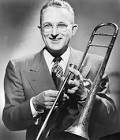REVIEW POTPOURRI: The Best of Tommy Dorsey
 by Peter Cates
by Peter Cates
I just began reading a 1980 novel, The Transit of Venus, by the Australian-born Shirley Hazzard (1931-2016) and was struck by the descriptive power of one paragraph evoking the atmosphere of the quiet South England countryside just before a violent lightning storm erupts; anyone like myself with finely tuned nerves to these mid-summer meteorological disturbances might appreciate her way with words here:
“That noon a man was walking slowly into a landscape under a branch of lightning. A frame of almost human expectancy defined this scene, which he entered from the left-hand corner. Every nerve – for even barns and wheelbarrows and things without tissue developed nerve in those moments – waited, fatalistic. Only he, kinetic, advanced against circumstances to a single destination.”
For what it’s worth, I got over my 20 years of fear of thunderstorms when I moved to Houston for 16 years.
The Best of Tommy Dorsey
MCA2-4074, 2 LPs, 1975 reissue comprised of early 1930s and 1950s Decca recordings.
The very brilliant arranger, bandleader and trombonist Tommy Dorsey (1905-1956) led one of the most successful orchestras during the Big Band Era from the early ‘30s to circa 1946, when he had to let his players go because of dwindling engagements. However, around 1947, an RCA Victor 78 set of his records scored on the Billboard top ten, where he had already charted 286 times during the previous decade and provided enough money for him to start another band.
The above set covers his years of recording for Decca before he moved to RCA Victor in 1935 and after he returned in 1950, and contains 20 sides, including the well-known Lullaby of Broadway, Ain’t She Sweet, Cheek to Cheek, I’m Gettin’ Sentimental Over You, the classical favorite Ritual Fire Dance from Manuel De Falla’s Love the Magician and the spiritual Nobody Knows the Trouble I’ve Seen.
The band’s most famous singers and instrumentalists – Frank Sinatra, Jo Stafford, Connie Haines, Buddy Rich, Bunny Berrigan, Glenn Miller – before 1937, older brother Jimmy Dorsey the clarinettist before their rift in 1934 and after their 1947 reconciliation, Gene Krupa, Nelson Riddle, Doc Severinsen etc.
For me, the centerpiece was Tommy’s trombone playing which, for phrasing and breathing, was admired and followed by Sinatra in how to sing beautifully.
Dorsey had a notorious temper and alienated many.
He gave Glenn Miller a very generous cash loan to start his own band in 1937, considering the loan an investment. When Miller’s band achieved success, Miller resisted sharing any profits with Dorsey.
During the mid-’30s, Tommy Dorsey built his own state of the art record playing system for home listening.
In 1956, the Dorsey Brothers hosted Elvis Presley on their TV show.
Responsible journalism is hard work!
It is also expensive!
If you enjoy reading The Town Line and the good news we bring you each week, would you consider a donation to help us continue the work we’re doing?
The Town Line is a 501(c)(3) nonprofit private foundation, and all donations are tax deductible under the Internal Revenue Service code.
To help, please visit our online donation page or mail a check payable to The Town Line, PO Box 89, South China, ME 04358. Your contribution is appreciated!




Leave a Reply
Want to join the discussion?Feel free to contribute!